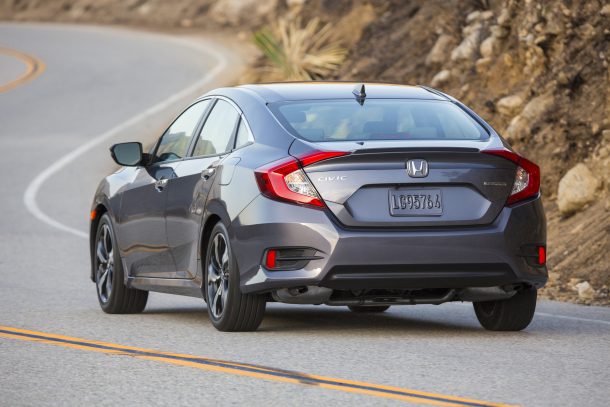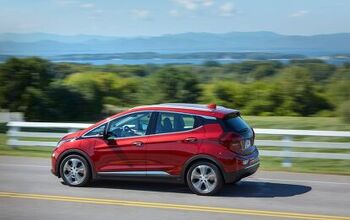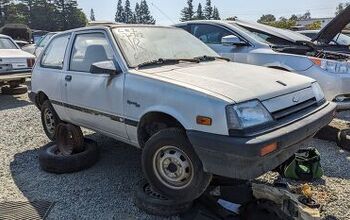Millennials Like Cars (Full Stop) and Are Warming up to Leasing

It’s long past time to put the bike (myth) away.
Outside of certain urban centers, Millennials are cuckoo for cars. Jobs and families and lifestyles, you see. As more members of the youngest car buying cohort show up at dealers looking to sign on the dotted line, their method of payment is evolving, too.
According to Dealertrack figures published by Automotive News, one of the main reasons for the dramatic upswing in Millennial car buying — besides aging — is long financing terms and low, low monthly payments.
Dealertrack data shows that in 2015, buyers aged 18-34 made up 35 percent of new auto loans. As of July 31 of this year, the average loan term was 70.5 months, up from 68.9 months in 2012.
While automakers fling youth-oriented vehicles at Millennials, sometimes via embarrassing and tone-deaf advertising campaigns, the car-buying demographic is increasingly taking the short-term approach to ownership. Adjustable-term loans are still king, but leasing is on the rise.
Loans outnumber leases among Millennial car buyers by a ratio of 19:1, but that’s less of a difference than in past years. From summer 2013 to summer 2015, the ratio was 24:1. In July, 27 percent of lease credit applications were from Millennials buyers, up from 20 percent in 2012.
The increase in young people turning to leasing can be blamed on a number of factors. They include Millennials being turned off by the thought of a long-term financial commitment, and the fact that many in the age group have extra cash on hand from living with their parents.
A high approval rate among Millennial lease credit applications shows that only those who feel they can really afford it bother to opt for leasing.
Naturally, more young people are turning to subprime credit to finance their first car. That’s to be expected as young people with little or no credit go after new wheels. According to Dealertrack, 43 percent of this year’s subprime credit applications originated from Millennials, up 15 percent from the first seven months of 2011.
[Image: American Honda]

More by Steph Willems
Latest Car Reviews
Read moreLatest Product Reviews
Read moreRecent Comments
- Redapple2 Love the wheels
- Redapple2 Good luck to them. They used to make great cars. 510. 240Z, Sentra SE-R. Maxima. Frontier.
- Joe65688619 Under Ghosn they went through the same short-term bottom-line thinking that GM did in the 80s/90s, and they have not recovered say, to their heyday in the 50s and 60s in terms of market share and innovation. Poor design decisions (a CVT in their front-wheel drive "4-Door Sports Car", model overlap in a poorly performing segment (they never needed the Altima AND the Maxima...what they needed was one vehicle with different drivetrain, including hybrid, to compete with the Accord/Camry, and decontenting their vehicles: My 2012 QX56 (I know, not a Nissan, but the same holds for the Armada) had power rear windows in the cargo area that could vent, a glass hatch on the back door that could be opened separate from the whole liftgate (in such a tall vehicle, kinda essential if you have it in a garage and want to load the trunk without having to open the garage door to make room for the lift gate), a nice driver's side folding armrest, and a few other quality-of-life details absent from my 2018 QX80. In a competitive market this attention to detai is can be the differentiator that sell cars. Now they are caught in the middle of the market, competing more with Hyundai and Kia and selling discounted vehicles near the same price points, but losing money on them. They invested also invested a lot in niche platforms. The Leaf was one of the first full EVs, but never really evolved. They misjudged the market - luxury EVs are selling, small budget models not so much. Variable compression engines offering little in terms of real-world power or tech, let a lot of complexity that is leading to higher failure rates. Aside from the Z and GT-R (low volume models), not much forced induction (whether your a fan or not, look at what Honda did with the CR-V and Acura RDX - same chassis, slap a turbo on it, make it nicer inside, and now you can sell it as a semi-premium brand with higher markup). That said, I do believe they retain the technical and engineering capability to do far better. About time management realized they need to make smarter investments and understand their markets better.
- Kwik_Shift_Pro4X Off-road fluff on vehicles that should not be off road needs to die.
- Kwik_Shift_Pro4X Saw this posted on social media; “Just bought a 2023 Tundra with the 14" screen. Let my son borrow it for the afternoon, he connected his phone to listen to his iTunes.The next day my insurance company raised my rates and added my son to my policy. The email said that a private company showed that my son drove the vehicle. He already had his own vehicle that he was insuring.My insurance company demanded he give all his insurance info and some private info for proof. He declined for privacy reasons and my insurance cancelled my policy.These new vehicles with their tech are on condition that we give up our privacy to enter their world. It's not worth it people.”


































Comments
Join the conversation
As a borderline baby-boomer/Gen-Xer, I've always preferred daily-driving beaters, tho I've also had a "good" car (or two) on standby. This last go-round, I leased a '13 Ford Edge Limited. I leased for several reasons: I don't drive a lot of miles (
We've been through the buy versus lease song and dance so many times. So I will provide 2 examples from my vehicle shopping just this week. Looking to buy another vehicle and trade either a 2011 Hyundai or a 2005 Buick. Both bought new. I will not countenance trying to sell privately, have neither the time nor the patience. The Hyundai was bought 66 months ago. Total cost with tax and destination rounded to 24,750. Offered a trade in value of just under $5k. Cost of ownership $300.75 per month. Plus $125 annual rustproofing, winter rims. new set of tires, coolant change, brakes front and back. Let's say $330 per month. I could have leased the same or a similar car for 48 months, returned it and leased a new one for another 28 months for a monthly cost of about $12 more. 2005 Buick that cost $28,500 new, including tax and destination. Owned for exactly 10 years (120 months). Total cost of $237.50. Put in just over $3,500 in parts and service over the past 24 months. Offered less than $1k as a trade. Making a total ownership cost of $258 per month. In return had the wife stranded on the side of a highway, many trips to and from the garage, etc. For about $20 more could have leased a new 'commuter' sized car that would have had more safety features and that I would not have to worry about the kids driving. So how much per month is peace of mind worth?